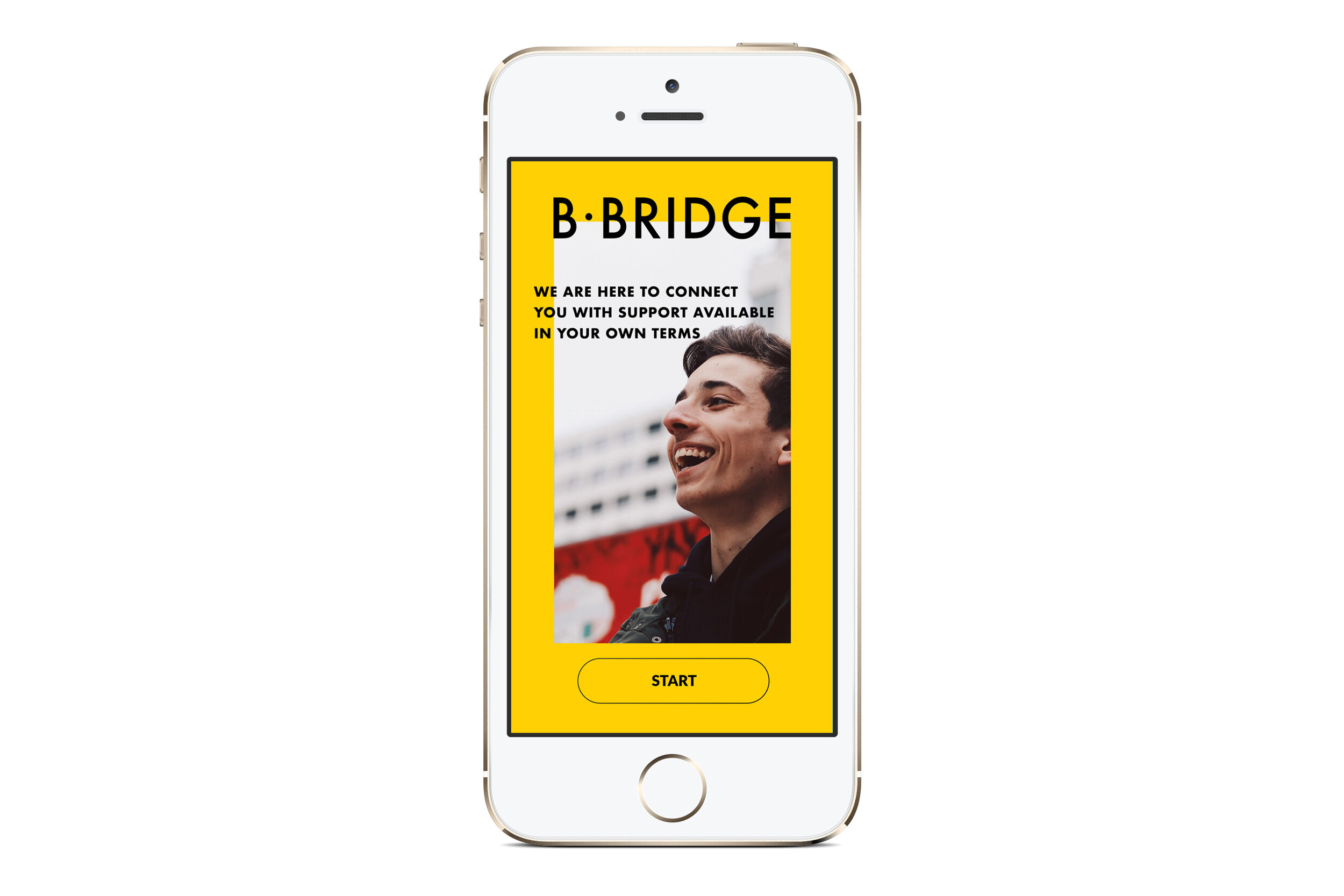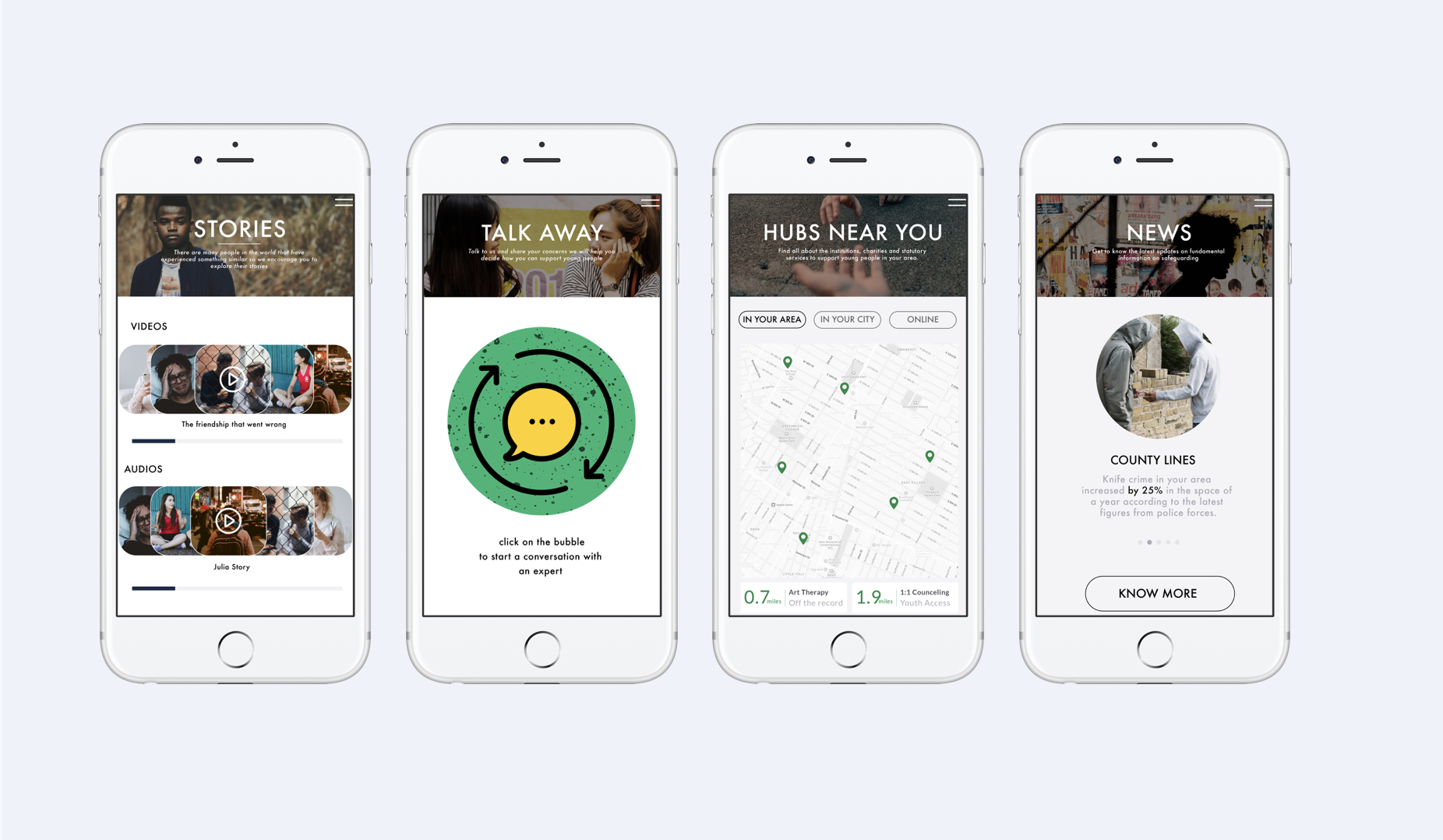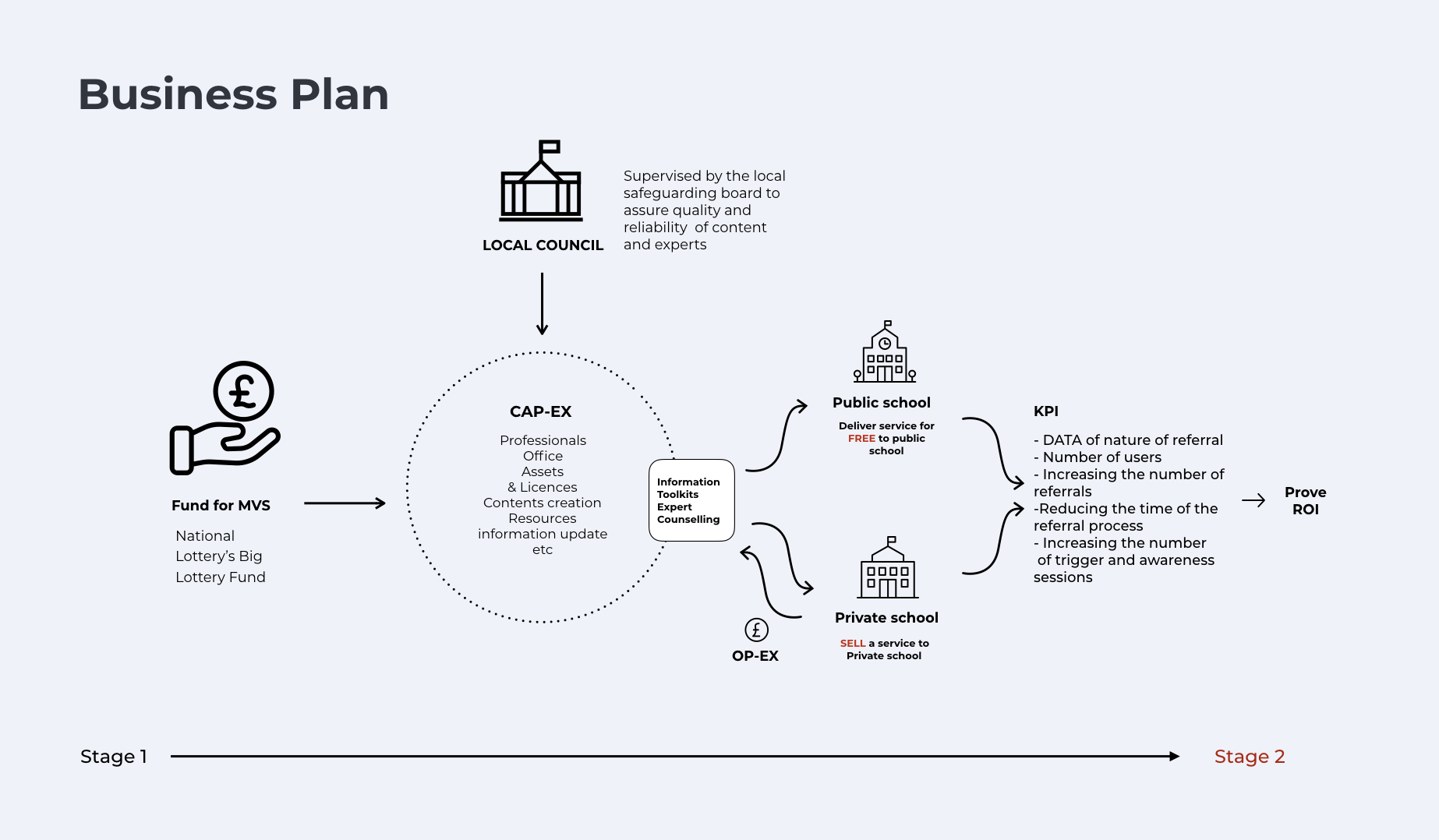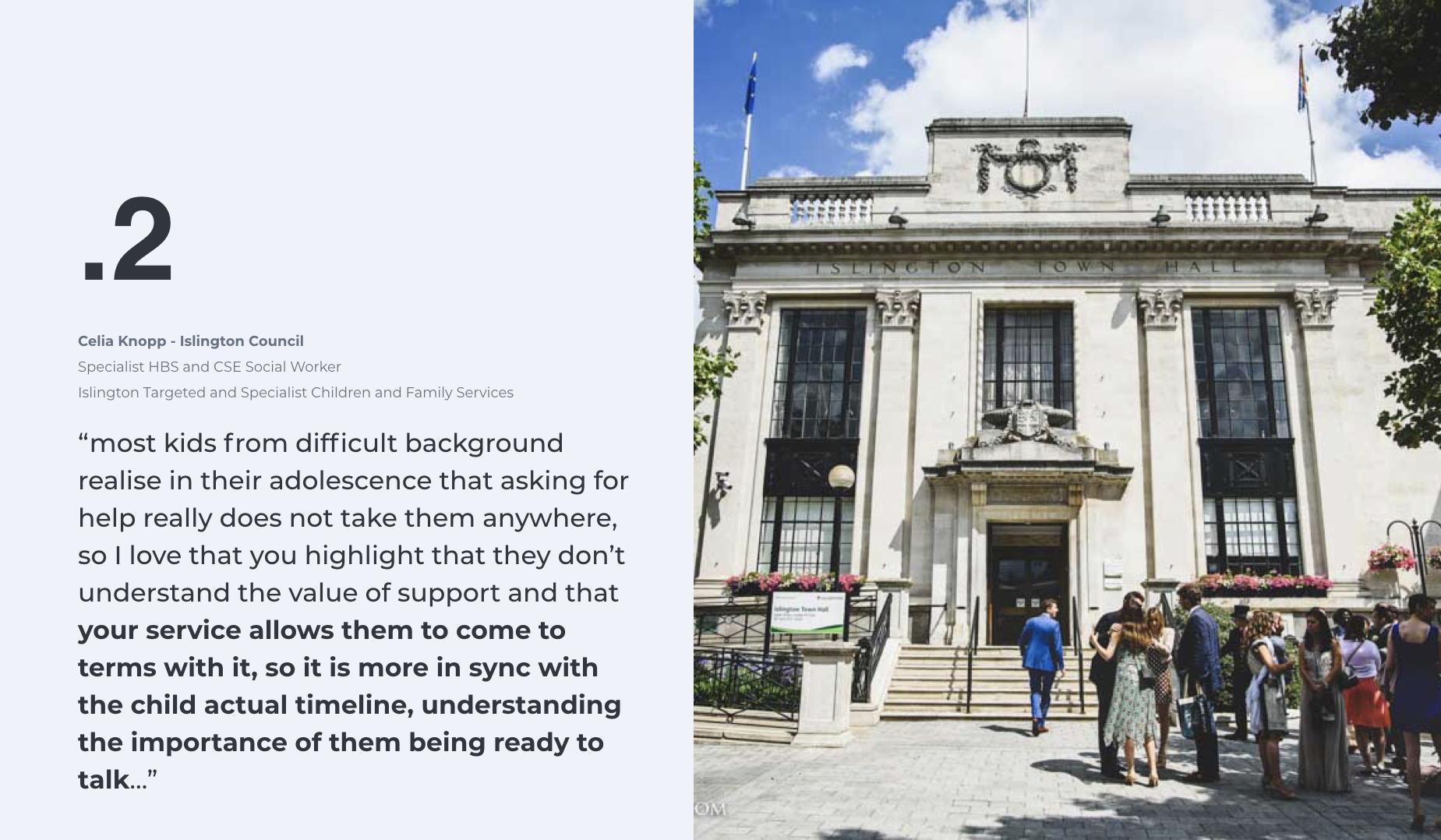This project follows the question posed by the Ministry of Justice (MoJ) and the design platform What Design Can Do, working closely with the Design Thinkers Academy (DTA), STBY, and the Royal College of Art (RCA) to launch an innovative challenge to tackle one of society’s most critical and complex issues.
Working within in this challenge we decided to focus on one particular brief that addresses this challenge from the perspective of those of us that are still unaware or uneducated to react or help suspected victims of CSE. Our particular brief pose the following question: how can we help professional detect the subtle signs of CSE (child sexual exploitation) and take action?.
· Insights
We conducted extensive desk and qualitative research and we notice there is an excessive focus on the system on prosecution, and that focus creates that victims don’t speak out or access mainstream support services, instead we learn that they seek support from trusted community organizations.
Furthermore, in terms of policy and public sector initiatives in this matter we realised that there is a lack development of support strategies in the before reporting stage. So due to this focus, the traditional way in which victims access support is by being connected to statuary services after reporting to the police, but is possible to access this support services without reporting, which is something most victims are not aware of.
During our research face we also found that Islington Council in London had already built on this realisation and were the first ones in the UK developing new support programs and pilots to make sure victims get the support they need at all times without the pressure of reporting. We connected with them and decided to partner in exploring new areas of opportunities to better support victims when they begin to recognise their situation but are not ready to report it.
With this objective in mind we looked for current theories of change from a policy point of view and we realised that this same year (2019) Secretary of State of the UK declare that if children feel supported, understood and protected they will report. So base in this theory we decided that our focus for this project will be: How might we make victims and potencial victims of CSE feel supported, understood and protected? in order to connect them with the support services currently available for them.
· Stakeholders
During our research we started by to identify which professional kids trusted so they be willing to open up to have a conversation in which they can feel supported and understood. And we realise that they open up and trust more the adults in their lives with whom they have voluntary relationships and don’t interfere in their everyday life. Like Tutor from elective courses or coaches so we decide to focus on helping them trigger conversations and improve their assessment and referral capabilities so minors can report informally and be refer earlier to support mechanism.




Though our interviews with tutors from elective courses and the pastoral support team from several schools we learn that what really help victims is to have a trigger to realise what they living though connected with having someone to talk about it that is able to connect them to further support.
But the what happens today is that Councils (as Islington for example) deliver trigger session that make kids realise what they are living though an abuse or exploitation situation but the school staff don’t have the capabilities to support the kids after a disclosure. So because of their accountability scare and the lack of protocols for medium lo low risk cases they can do two thing, they focus on building evidence or they refer kids badly to social services.
And just to be clear when we are talking about medium to low risk of CSE we are referring to cases in which they no evidence of habitual abuse, which acknowledge that is happening anyways.
So that leave us with having victims today what are not fully aware of their situation, are afraid of the consequences, don’t know how to access help and don’t understand the value of support.
In order To make their behaviour change, what they need first is to understand that they are in an abusive situation, they need assessment on the routes and consequences of different support structures, to be able then to feel safe wile while talking to someone that can heard them and refer them to external support when they feel ready.
· Proposal








with all of these in mind we created B-BRIDGE an NGO that offers schools and professionals the resources and platforms to help assess students and young people in relation to the grey areas in social and sexual exploitation.
· Transforming young people life through supportive connections.
· How does it work?



· Validation













